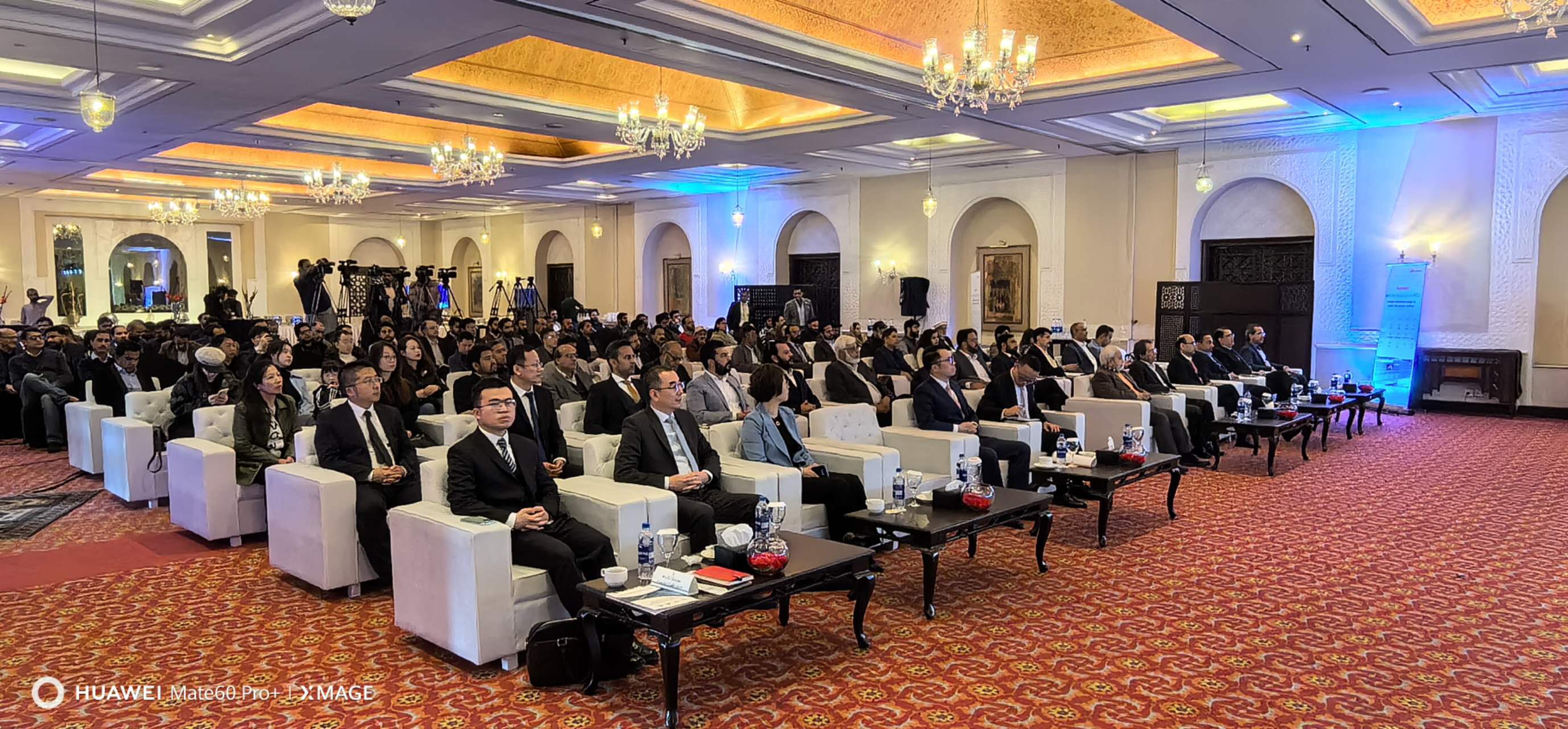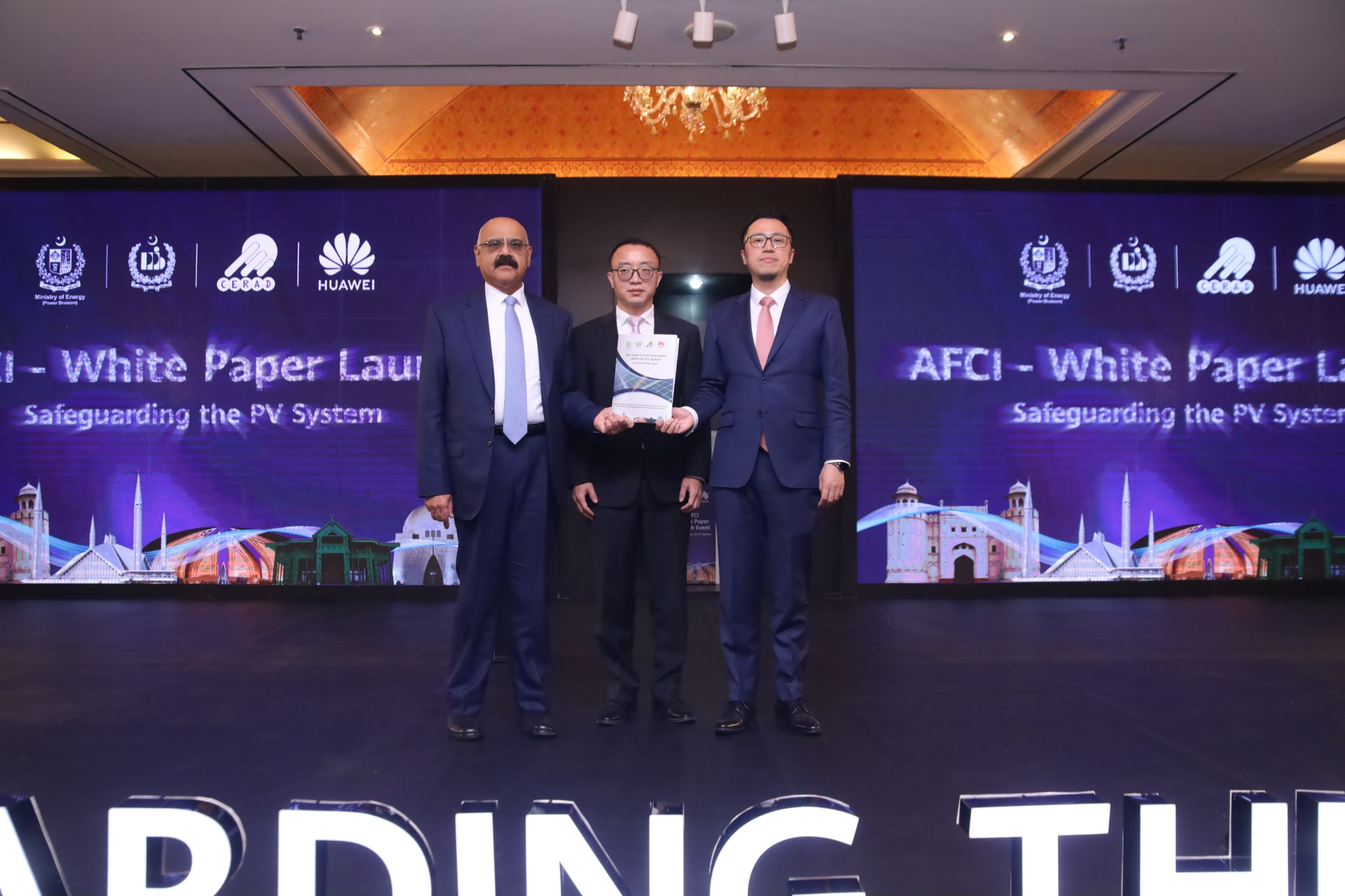ISLAMABAD, Dec. 26 – Power Infrastructure Board (PPIB), CERAD and Huawei Pakistan on December 19 jointly unveiled the White Paper on Arc Fault Circuit Interrupter (AFCI) for Photovoltaic systems, marking a major advance in field of solar power technology.

The launch of the White Paper
The launch, a result of cooperative efforts with Private Power & Infrastructure Board (PPIB) and the Center for Advanced Research in Engineering and Development (CERAD), is expected to redefine the development pattern of PV power plant development in Pakistan.
The event, adorned with a technical white paper launch ceremony, featured Chief Executive Officer of Huawei Pakistan, Ethan Sun, who emphasized the importance of AFCI in promoting the development of advanced PV technology because it could provide a systematic reference for enterprises involved in the development of PV power stations.
“This document serves as a comprehensive guide for related stakeholders, expounding the development background, technical principles, challenges, features, and the tangible results of AFCI technology verification and evaluation,” Sun added.
Shah Jahan Mirza, Managing Director of Private Power & Infrastructure Board, praised Huawei’s commitment to technological advancement and emphasized that the introduction of this cutting-edge technology will play a key role in solving Pakistan’s power challenges. “This white paper is a comprehensive industry guide,” Shah Jahan Mirza emphasized, “at the same time, Huawei’s insights and capabilities undoubtedly add value to its efforts, further consolidating the reliability of the assessment results.”
A staff of Huawei Smart PV Business Solutions in Pakistan told Gwadar Pro reporter that so far, Huawei’s smart PV business has entered the Pakistani market for nearly 10 years. with a delivery of more than hundreds of megawatts of PV systems in the country, covering industrial and commercial scenarios such as shopping malls, hospitals, cement plants, and textile factories as well as household scenarios, among which the largest single project, the Scatec Sukkur 150MW project, has been successfully delivered and connected to the grid.
“By taking advantage of digital technology and integrate existing digital technology with photovoltaic, energy storage, cloud, and AI technologies, we have provided FusionSolar intelligent optical storage solutions, which are suitable for five major scenarios including power generation, transmission and distribution, as well as electricity consumption: smart optical storage generators, smart string energy storage systems, industrial and commercial smart PV solutions, home smart PV solutions, and smart microgrid solutions,” Liang noted. “All of these effectively reduce the levelized cost of energy (LCOE) of photovoltaic power stations throughout their life cycles and improve grid performance.”
Both parties unanimously agree that the AFCI white paper will serve as a catalyst for further innovation and set a new benchmark for the integration of cutting-edge technologies in Pakistan’s pursuit of sustainable, secure and energy-efficient energy.
















